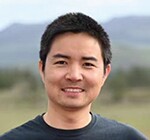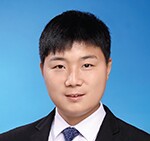With the A Peer Apart award, SPE recognizes those dedicated individuals involved in the review of 100 or more papers for SPE’s peer-reviewed journals.
Peer review is an essential part of scientific publishing and helps to ensure the information contained in a journal is well supported and clearly articulated. Volunteers who commit their time to review papers make substantial contributions to the technical excellence of our industry’s literature. Each year, SPE typically has more than 1,400 individual reviewers submitting more than 3,500 reviews for SPE’s various journals. These committed volunteers come from a variety of backgrounds, including academia, service and operator companies, and consultancies from around the world.
Peer review is a demanding and time-consuming task. Over time, the individuals receiving this honor have volunteered hundreds of hours to the Society, making SPE journals a valuable resource to authors and the industry. It is an outstanding accomplishment for those who reach the milestone of reviewing 100 papers.
This year, six individuals join this elite group, bringing the total membership of A Peer Apart honorees to 198 dedicated members.
Please join us in congratulating the 2022 honorees.

Baojun Bai is a professor and the Lester R. Birbeck Endowed Chair in Petroleum Engineering Program at the Missouri University of Science and Technology (S&T). He has 7 years of industry experience as a reservoir engineer and as the head of the Conformance-Control Team of RIPED, PetroChina. Bai was a post-doctoral scholar at the California Institute of Technology before he joined Missouri S&T as a faculty member in 2006. He has had more than 25 years of experience in the research areas of enhanced oil recovery, unconventional reservoir development, conformance control, CO2 storage, and geothermal and has completed multiple research projects received from DOE, NSF, and industry consortium members. He holds PhD degrees in petroleum engineering from New Mexico Tech and in petroleum geology from China University of Geoscience–Beijing. Bai has published more than 200 papers in peer-reviewed journals and more than 120 papers in SPE conferences. He served on the JPT Editorial Committee from 2007 to 2013 and is currently serving as the associate editor for Journal of Petroleum Sciences and Engineering, Geofluids, and Petroleum Sciences. Bai is an SPE Distinguished Member.

Bailian Chen is a staff scientist at Los Alamos National Laboratory and principal investigator for various carbon capture and storage (CCS) projects funded by the US DOE. His research interests include machine learning, optimization (CO2/H2 pipeline transport network optimization, well placement/control optimization, and pilot/monitoring optimization), assisted history matching/data assimilation, uncertainty quantification and risk assessment with their applications in CO2 storage and oil/gas production. He holds a PhD degree from The University of Tulsa and bachelor’s and master’s degrees from China University of Petroleum, all in petroleum engineering. Chen has published more than 40 scientific journal articles/conference papers and delivered more than 20 technical presentations/invited talks at various conferences and universities. He was one of the recipients of the 2019 R&D 100 Award (widely known as the “Oscars of Invention”) and R&D 100 Silver Medal for his contribution to the SimCCS, an open-source toolset for CCS pipeline infrastructure decision making. Chen serves as an associate editor for Journal of Petroleum Science & Engineering and SPE Reservoir Evaluation & Engineering.

Zhiming Chen is a professor of petroleum engineering at China University of Petroleum–Beijing. During the term of 2016–2017, he was a visiting scholar in the Department of Petroleum and Geosystems Engineering at The University of Texas at Austin. He is interested in well testing, numerical simulation, and CO2 sequestration, focusing on the development of unconventional reservoirs with multistage hydraulic fractures. Chen has authored or coauthored more than 30 technical peer-viewed publications. He holds a BS degree from Yangtze University and MS and PhD degrees from China University of Petroleum–Beijing. Chen serves as a member of the Cedric K. Ferguson Medal Committee, Reservoir Award Committee, and 2022 IPTC SPE Subcommittee, among others. He has served as an associate editor for SPE Journal and Petroleum Science.

Hamid Emami-Meybodi is an associate professor in the Department of Energy and Mineral Engineering at The Pennsylvania State University. He joined Penn State in 2015 following 10 years in academia as a research associate/assistant at the University of Calgary, University of Regina, and Petroleum University of Technology. His research focuses on the fluid flow and transport phenomena in porous media, with an emphasis on the development of unconventional resources and carbon capture, utilization, and storage. Emami-Meybodi has published more than 50 technical publications. He is currently serving as an associate editor for SPE Journal, as a member of the SPE International Scholarship and Fellowship Committee, and as the faculty advisor for the Penn State SPE Student Chapter. He received the 2021 SPE Regional Service Award, 2019 SPE Cedric K. Ferguson Medal, 2018 SPE Regional Reservoir Description and Dynamics Award, 2015 Endeavour Research Fellowship from the Australia Department of Education, and 2014 Alberta Innovates-Technology Futures Award from the Government of Alberta, Canada. Emami-Meybodi holds BS and MS degrees in chemical and reservoir engineering from the Petroleum University of Technology and MEng, MS, and PhD degrees in petroleum engineering from the University of Calgary.
Kirk S. Hansen is retired from Shell following more than 35 years as a geoscientist. He has also worked as an independent consultant in the environmental industry and is a licensed professional geoscientist (geology) in Texas. Hansen’s professional interests include pore-pressure prediction, wellbore and reservoir geomechanics, unconventional resources, hydrogeology, and soil and groundwater remediation. He has authored or coauthored more than 15 published technical papers and holds three US patents. He holds bachelor’s and master’s degrees in meteorology and oceanography from the University of Michigan and master’s and PhD degrees in geophysical sciences from the University of Chicago. Hansen has been an SPE member since 1983 and is currently an associate editor for SPE Reservoir Evaluation & Engineering. He received Outstanding Technical Reviewer Awards for SPE Production & Operations in 2014 and SPE Drilling & Completion in 2019 and an Outstanding Associate Editor Award for SPE Reservoir Evaluation & Engineering in 2020. Hansen enjoys running, bicycling, and gardening.

Miao Zhang is currently an associate professor in the College of Petroleum Engineering at China University of Petroleum–Beijing. Before joining CUPB, she served for 2 years as an assistant professor of petroleum engineering at New Mexico Institute of Mining and Technology. Her research focuses on mathematical (analytical and numerical) modeling of fluid flow in porous media with emphasis on multiphase flow physics and rock/fluid interactions. She serves as an associate editor for SPE Journal and as a technical reviewer for SPE Journal, SPE Reservoir Evaluation & Engineering, and SPE Production & Operations. Zhang was the recipient of the Outstanding Technical Reviewer Award in 2019. She holds a BS degree in chemical engineering from Tianjin University, and MS and PhD degrees in energy and mineral engineering from The Pennsylvania State University.

